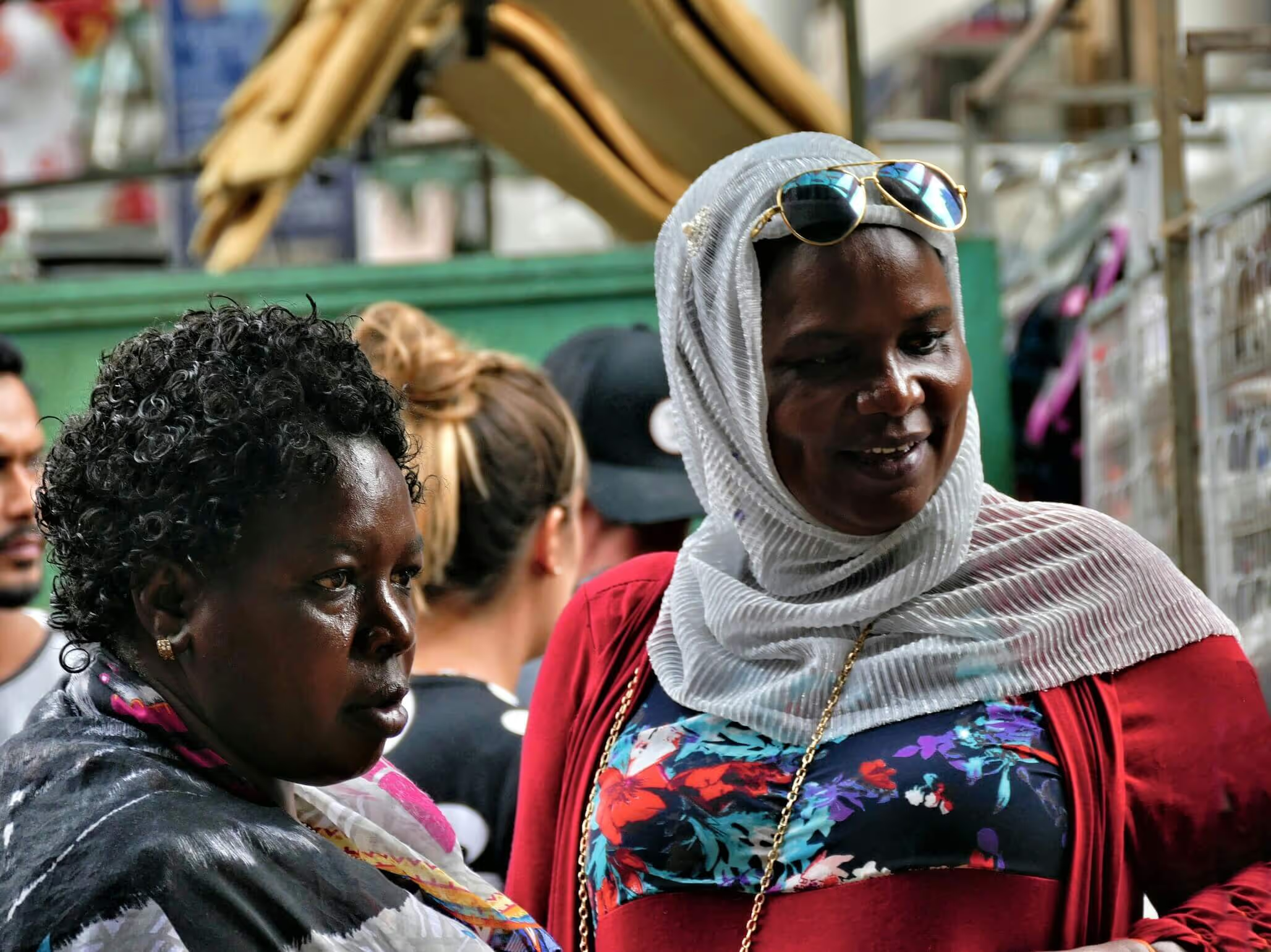Countries that cite less than one social reason donate just 0.56% of their income, on average
.svg)
Uncover deeper insights into what, how and why people give — so you can shape smarter strategies, inspire greater generosity and drive more change.

Two-thirds of the world donated money in 2024
To capture the true scope of the world’s generosity, we asked about three different types of giving:
Across the world, we found out more about the views of people who had done none, one, or a combination of any of these three types of giving.
Globally, giving money directly to those in need is the most common way to give (38% of people), followed by donating to charities (36%) and religious giving (25%).
Religious giving and giving directly to those in need were most prevalent in Africa, while giving to charity was most common in Oceania.
The proportion of people who did each type of giving
Africa

Asia

Europe

North America

Oceania

South America

LARGEST SHARE OF DONATIONS GOES DIRECTLY TO THOSE IN NEED
THE SHARE OF DONATIONS MADE THROUGH EACH TYPE OF GIVING
In this section, we turn to the value of donations, and how that is split across the three types of giving this research covers — charitable giving, direct giving, and religious giving. On average across the world, people give 40% of the value of their donations directly to people in need, 36% to charities, and 24% to religious organisations, with donations through each route tending to be at similar levels (in other words, people who give through one route are no more generous than those who give through another).
THE HIGHEST AND LOWEST SHARES OF EACH TYPE OF GIVING
People in Hong Kong give the largest share of their donations to charities (77%), while people in Sierra Leone give the lowest (6%).
In Angola, people give the highest amounts via religious routes, with more than half (55%) of the value of donations taking place in this way. However, in Sudan just 3% of the value of donations is made via religious routes.
In Yemen, people prioritise direct giving more than anywhere else in the world, with 80% of the value of their donations made in this way, compared with just 9% in Hong Kong.
Highest share of donations that go via religious routes
Highest share of donations that go to charity and lowest share that go directly to people in need
Lowest share of donations that go to charities
Lowest share of donations that go via religious routes
Highest share of donations that go directly to people in need
AFRICA IS THE WORLD’S MOST GENEROUS CONTINENT
For the first time, CAF is introducing a measure of generosity that we believe can be applied fairly across all countries and territories — giving as a share of income. This metric is based on responses to our survey, which collected data about respondents’ take-home income and the amount they donated in 2024.
Africa is the world’s most generous continent, both by how much donors gave as a share of their incomes (1.54%) but also by the percentage of people who donated (72%).
Globally, people donated 1.04% of their income on average. This included giving to charities, giving directly to people in need, and giving to religious organisations or for religious reasons.

Percentage of income donated by continent:

ASIA

NORTH AMERICA

OCEANIA

South America
.png)
EUROPE
COUNTRIES WITH MORE MONEY ARE LESS GENEROUS
People in high-income countries tend to donate less as a percentage of their annual incomes, giving away just 0.7% on average. This is around half the proportion given in low-income countries, where people donate an average of 1.45% of income.
Of the five very least generous countries in the world, three are G7 countries — France, Germany and Japan. Indeed, Japan is the least generous country in our survey, where only 16% of people donate and they give just 0.16% of their income to good causes on average. That is nearly 18 times less as a proportion of income than people in Nigeria.

Percentage of annual income donated:
The average share of income donated is highest in low-income countries (1.45%). Among this group of countries, people in Uganda (2.04%), Malawi (1.80%) and Tanzania (1.69%) donate the most.
The average proportion given remains steady in lower-middle-income countries (1.43%). Among this group of countries, people in Nigeria (2.83%), Egypt (2.45%) and Ghana (2.19%) donate the most.
The average proportion given drops sharply among upper-middle-income countries (1.02%). Among this group of countries, people in China (2.19%), Turkey (1.77%) and Botswana (1.48%) are the most generous.
The most generous high-income countries are Qatar (1.92%), UAE (1.92%) and Saudi Arabia (1.13%), pulling up the overall average for this group of countries. In almost all of the 39 high-income countries in our research, people donate less than 1% of their incomes.
Children and young people are the one cause we all care about
Alongside asking people about the different ways in which they give — charitable giving, religious giving, and direct giving (to people and families in need) — we also asked them about the end causes they supported through their giving.
Only children and young people make the top five causes on every continent. In Africa, religious organisations are the most popular, while in Asia it is poverty relief, and in Europe it is humanitarian aid and disaster relief. Homelessness is among the top supported causes across the whole of the Americas, while Health charities come top in Oceania.
The numbers shown here for religious organisations differ to those in our earlier results. That is because not everyone who did religious giving then went on to say that the end cause itself was a religious organisation. As many as 37% of religious givers only gave to causes that were not overtly religious — showing the extent to which religion inspires giving more widely, such as to poverty relief, homelessness, or humanitarian aid.

AFRICA

ASIA
.png)
EUROPE

NORTH AMERICA

SOUTH AMERICA

OCEANIA
The countries that care most about people and planet
People around the world care deeply about humanitarian and environmental causes. Use the tabs below to see which countries give the most to each.
9
HOURS
Was the average amount of time spent volunteering in 2024
Did you do a long day’s volunteering in 2024? If so, you align with the average when compared to the rest of the world.
Overall though, only around one in every four people volunteer (26%), meaning that those who do are likely to be doing around a week’s worth of volunteering (34 hours) to make up for those that do not.
Africa is the most generous with their time at an average of 14 hours 30 minutes per person, while Europe is the least generous at just 6 hours and 30 minutes.

AFRICA
per person in 2024
Top cause: Religion
Total volunteer hours: 8.2 billion

ASIA
per person in 2024
Top cause: Older people
Total volunteer hours: 28.4 billion

EUROPE
per person in 2024
Top cause: Older people
Total volunteer hours: 4.0 billion

NORTH AMERICA
per person in 2024
Top cause: Children or young people
Total volunteer hours: 3.1 billion

SOUTH AMERICA
per person in 2024
Top cause: Children or young people
Total volunteer hours: 2.2 billion

OCEANIA
per person in 2024
Top cause: Children or young people
Total volunteer hours: 0.24 billion
EXPLORE MORE GENEROSTIY TRENDS
Find out where people are the most sceptical of charities. See how people feel about their government’s relationship with charities. Discover how religion impacts giving around the world.

Find out where people are the most sceptical of charities

Find out what people think about how governments interact with the charity sector
%20(1).avif)

%20(2).avif)

.png)








%20(1).jpg)

